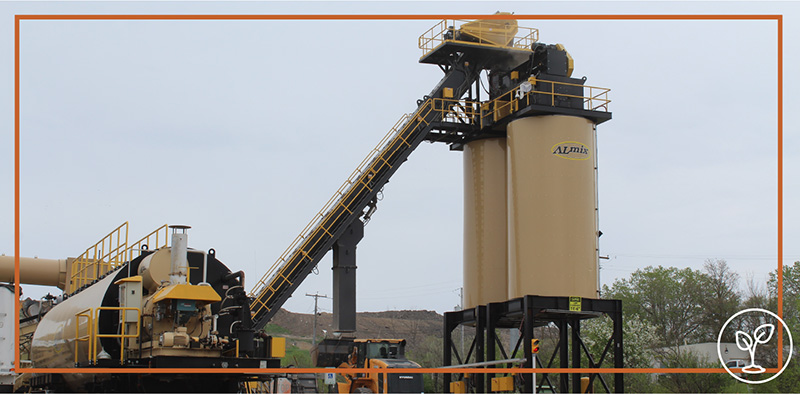
The concept of an asphalt plant may not seem inherently associated with eco-friendliness. However, these plants play a pivotal role in providing high-quality asphalt for roads and driveways, while also embracing environmentally friendly practices through innovative methods to reduce carbon footprints and fostering a more sustainable future. At Johnson & Sons Paving, we take pride in offering superior asphalt paving solutions to businesses and homeowners, backed by our commitment to quality workmanship and customer satisfaction.
What is an Asphalt Plant?
An asphalt plant, also known as an asphalt mixing plant, is a facility where the production of asphalt concrete takes place. It is a complex of machinery designed to heat and mix aggregates, bitumen, and other addictive to produce asphalt mixture used in the construction and maintenance of roads, parking lots, and other surfaces.
Here at Johnson and Sons, we have our own asphalt plant where we’ve developed a proprietary asphalt mix to ensure the durability and reliability of our pavements, parking lots, driveways, and drive-throughs. This allows us to have more control over the quality of our paving projects from the foundational materials to the final pavement, which will help reflect our commitment to delivering the best results for our customers. Additionally, our asphalt plants enable us to engage in environmentally friendly practices by recycling asphalt, contributing to the reduction of carbon footprints, and promoting a greener future. Learn more today by contacting us!
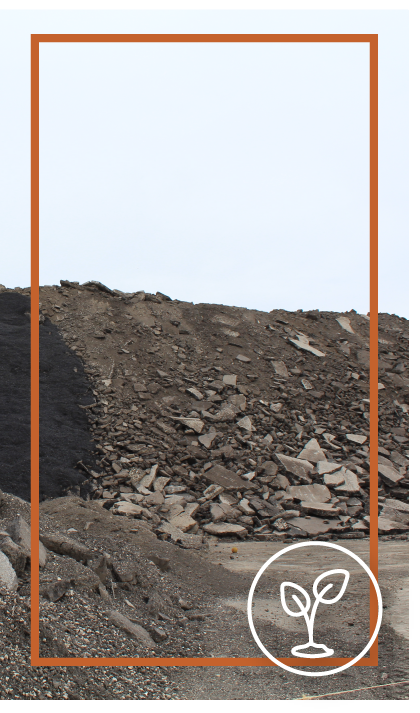
3 Types of Asphalt
There are three primary types of asphalt used in the construction and maintenance of roads and pavements:
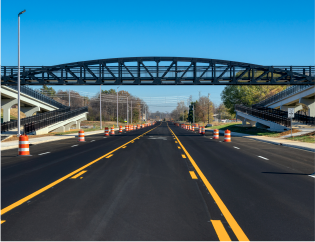
Hot Mix Asphalt (HMA): This is the most commonly used asphalt. It is produced at high temperatures and is suitable for highways, city streets, and parking lots.

Warm Mix Asphalt (WMA): It is produced at lower temperatures compared to HMA, which can result in reduced energy consumption and lower emissions during the manufacturing process, offering environmental and economic benefits.
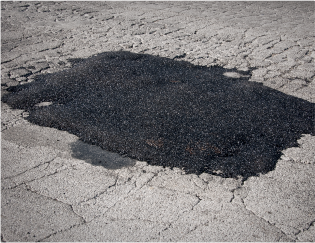
Cold Mix Asphalt: This asphalt is produced and applied at lower temperatures than HMA and WMA, making it suitable for use in colder weather conditions. But this is only used for temporary repairs and patching!
Each type of asphalt has specific characteristics and is chosen based on factors such as the intended application, environmental considerations, and project requirements. So, it is very important to select the right type of asphalt to ensure the longevity and performance of the pavement.
Do Asphalt Plants Cause Pollution?
Yes, without proper management asphalt plants can potentially contribute to environmental issues. However, at Johnson and Sons Paving, we understand the importance of responsible environmental practices in asphalt production. Our asphalt plant integrates advanced pollution control equipment to mitigate emissions and minimize our environmental impact. Through these innovative technologies, we proactively address environmental concerns, ensuring eco-conscious operations in our asphalt production processes to make sure we are not contributing to pollution. Join us in our commitment to sustainable paving solutions and environmentally friendly practices!
Impact of Asphalt in Soil
At Johnsons and Sons Paving, we understand that asphalt, a stable substance, does not inherently pose toxicity in soil and has a limited capacity for degradation. But when combined with pollutants such as heavy metals, it does have the potential to pose environmental hazards. Therefore, we do ensure the proper disposal of asphalt and it’s important that we closely monitor its use in our construction activities in order to protect the environment from potential contamination.
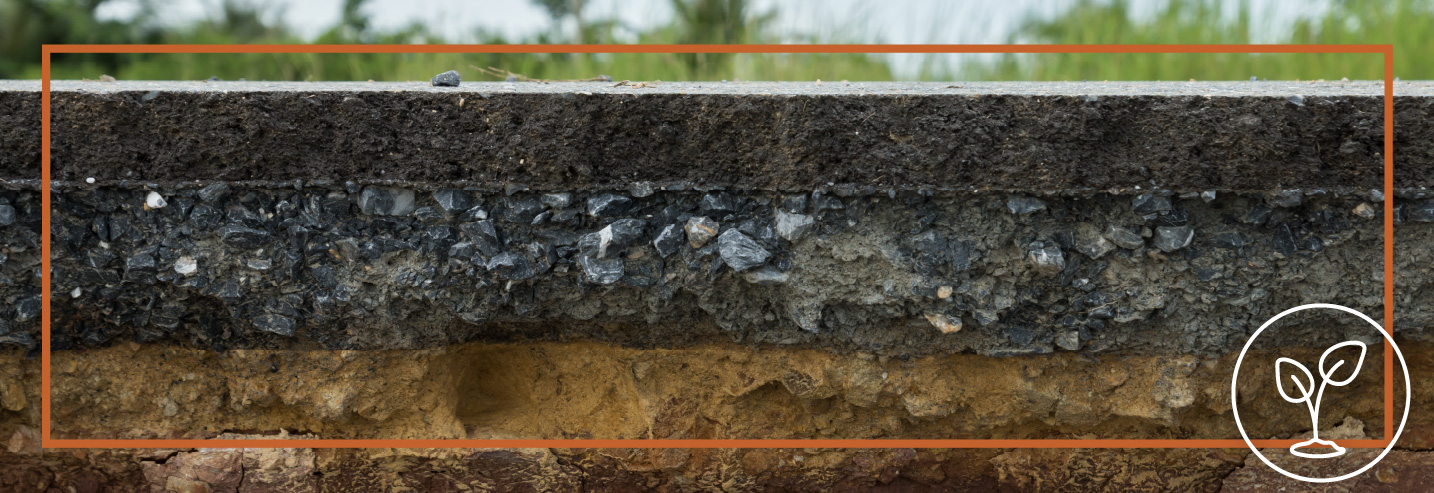
100% Recyclable
Asphalt is considered one of the most recycled materials in the United States and is highly recyclable. That means when asphalt pavement is removed, it can be recycled and reused in new pavement construction or maintenance. This process is called asphalt recycling and not only does it conserve natural resources, but also reduces the need for virgin materials. However, it’s important to note that while asphalt is highly recyclable, the recycled asphalt mixture may not always be 100% recycled due to factors such as the availability of recycled asphalt pavement and specific project requirements.
Johnsons and Sons Impact
To ensure that we are doing our part to help with sustainability, we take into consideration the effects of our equipment as well. We are constantly investing in more environmentally friendly machinery and equipment. It is important to continuously maintain and optimize our existing fleet to limit our use of natural resources. If we are able to keep our fleet in good condition, it will limit the amount of equipment we need to dispose of. If equipment is no longer available for our jobs, we will always retire it to another job that it is capable of still completing.
At Johnson & Sons Paving, we recognize the significant advancements in asphalt plants toward aligning with environmentally friendly practices, signifying a crucial shift toward sustainable production methods. By prioritizing cleaner fuel options, efficient resource management, and responsible disposal practices, asphalt plants now serve as exemplars of eco-consciousness within the construction industry. We must continue to use these sustainable approaches, as asphalt plants not only pave the way for durable infrastructure but also champion a greener future. Let’s work together to demonstrate that environmental responsibility can seamlessly blend with efficient production practices for a more sustainable tomorrow! Contact us today to learn more about our asphalt solutions and how Johnson & Sons Paving can assist in fulfilling your project requirements!
